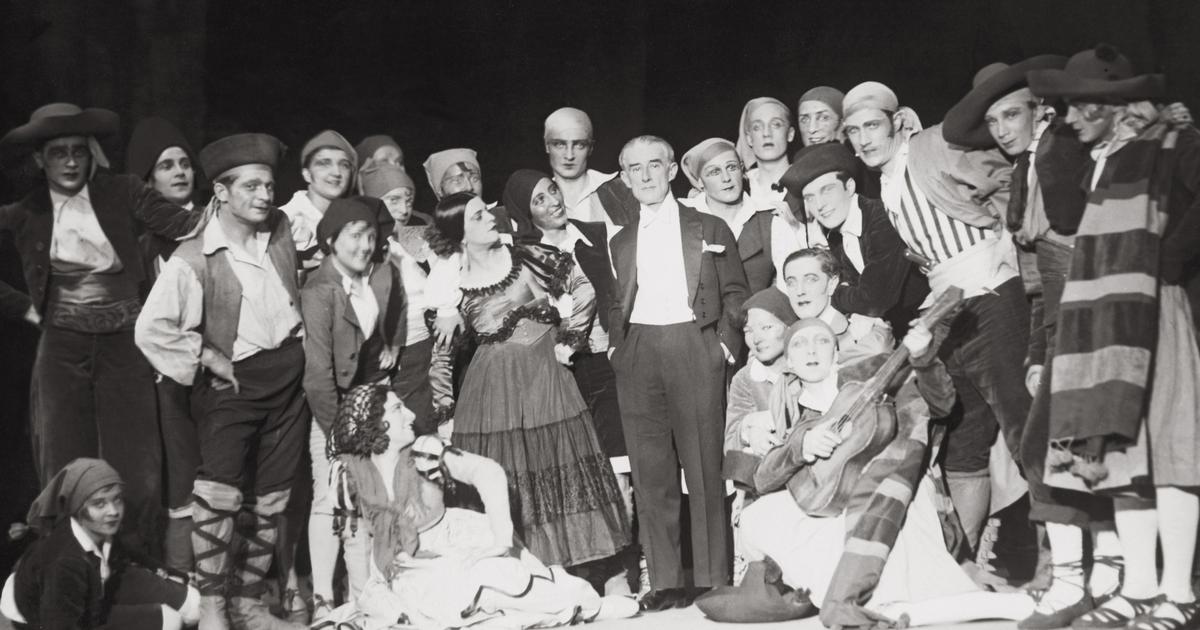The Nanterre judicial court ruled on Friday in the case of copyright relating to one of the most famous pieces of classical music in the world.
The Nanterre court on Friday rejected the rights holders of Maurice Ravel and the Russian decorator Alexandre Benois, who asked the Society of Authors, Composers and Music Publishers (Sacem) to recognize the latter as co-author of the famous Boléro. The tribunal “rejected the requests of the rights holders of Maurice Ravel and Alexandre Benois regarding the Boléro, one of the most performed and distributed works in the world”the court detailed in a statement, the work “therefore remains in the public domain”.
Concerning the hypothesis of co-authorship of Alexandre Benois, the court considered that “the documents provided did not demonstrate his quality as author of the argument (short summary, editor’s note) of the ballet”. The thesis of another injured co-author, the choreographer Bronislava Nijinska, was also dismissed by this judgment, the artist not having “never appeared on the documentation of the Bolero as co-author”.
“This is a very well-reasoned decision, which took care to examine all the elements brought to the attention of the court and which validates Sacem both in its approach (…) and in its position with regard to safeguarding the interests of its members.”reacted to AFP Yvan Diringer, who defends Sacem with Josée-Anne Bénazéraf.
“The action of estates and publishers (also parties to the case, editor’s note) is rejected by the court, we analyze the decision calmly before responding to the press”for his part declared to AFP Gilles Vercken, lawyer for the Ravel estate.
The Benois estate, the Ravel estate and the companies in the Netherlands and Monaco through which the rights to Maurice Ravel’s works pass are jointly ordered to pay 100,000 euros to Sacem and the costs of the proceedings. Maurice Ravel’s heiress, Evelyne Pen de Castel, is also ordered to pay one euro to Sacem. “in compensation for the damage resulting from the abuse of the author’s moral rights”, details the decision. This judgment ensures that at this stage, the Bolero remains in the public domain as it has been since 2016.
With this decision, justice puts an end to a legal series which led the Ravel estate and the beneficiaries of Alexandre Benois to request that the work no longer be considered in the public domain: if the decorator was recognized as co-creator, it It is his date of death, later, and not that of Ravel’s death (1937) which should have been taken into account.
During the hearing on February 14, the rights holders of this artist argued that refusing to recognize their ancestor as co-author of this global success is not a right that Sacem can assume. “The music of the Boléro was created especially for the ballet”, had asserted Édouard Mille, lawyer for the Benois estate. On the Ravel estate side, we also estimate that the Bolero is a “collaborative work” with the Russian decorator, supporting historical arguments. Among these arguments are notably the presence of the name of Benois on the argument of two ballets performed on the evening of the premiere of Ravel’s work in 1928, the statements of Louis Laloy, general secretary of the Paris Opera, who wrote In Le Figaro that Alexandre Benois was the«auteur» of the three shows, or even a letter from a legal director of Sacem in the 1980s mentioning the collaboration with the ballet choreographer, Bronislava Nijinska…
Protected for 78 years and four months
For Sacem’s lawyer, Josée-Andrée Bénazéraf, the plaintiffs’ claims fell within the scope of “historical fiction”. Recognizing co-authorship would imply “having to tear up the 1929 declaration form signed by Ravel who claims to be the sole author of Boléro in order to replace him, (which) infringes the moral rights (of the composer) who has always considered himself the sole author”she had pleaded at the hearing.
The Bolero was protected for 78 years and four months: in France, the rights to a work expire 70 years after the death of the author – 1938 in the case of Ravel. But the law provides for extensions that aim to compensate for the loss of earnings of French artists during the two world wars, which extended the protection until May 1, 2016. If the rights generated represented “for a time millions and millions of euros” annual, according to information provided to AFP by Sacem’s lawyer, Josée-Anne Bénazéraf, the amounts reached an average of 135,507 euros per year between 2011 and 2016.

stu728 | Profile
stepmanx5, Autore presso Strumentazione Oftalmica Usata
jeanninefranks – Pengguna – Portal Data Pemerintah Kota Batu
Page not found · GitHub · GitHub
edgardodarling – Users – Portal Sata PB Jawa Timur
Certificate verification problem detected
mammothicfilms | Profile
Just a moment…
heaving
Do it yourself: Enhancing Your : Notes
topfuneral marketing's (topfuneralmarketing1) software portfolio | Devpost
Just a moment…
Mammothic Films | Portfolium
Join mammothic films and invest in startups on Republic
Cheryl Aldridge's Profile page
Kaleidas
@joker123motobola Instagram Influencer Profile – Contact joker123motobola
Villabetting Diluncurkan: Slot Sepak Bola Utama Indonesia
Strategi Ampuh Bermain Slot Online Di Parisslot: Home: Strategi Ampuh Bermain Slot Online Di Parisslot
404 | 3G Bikes
harleywaddell – Pengguna – Portal Data Pemerintah Kota Batu
Qoohme
PT. ANDIKA Teguh Setya Community
Pengenalan Parisslot: Mengapa Platform Ini Begitu Populer? | Heritage University
mammothic films | Profile